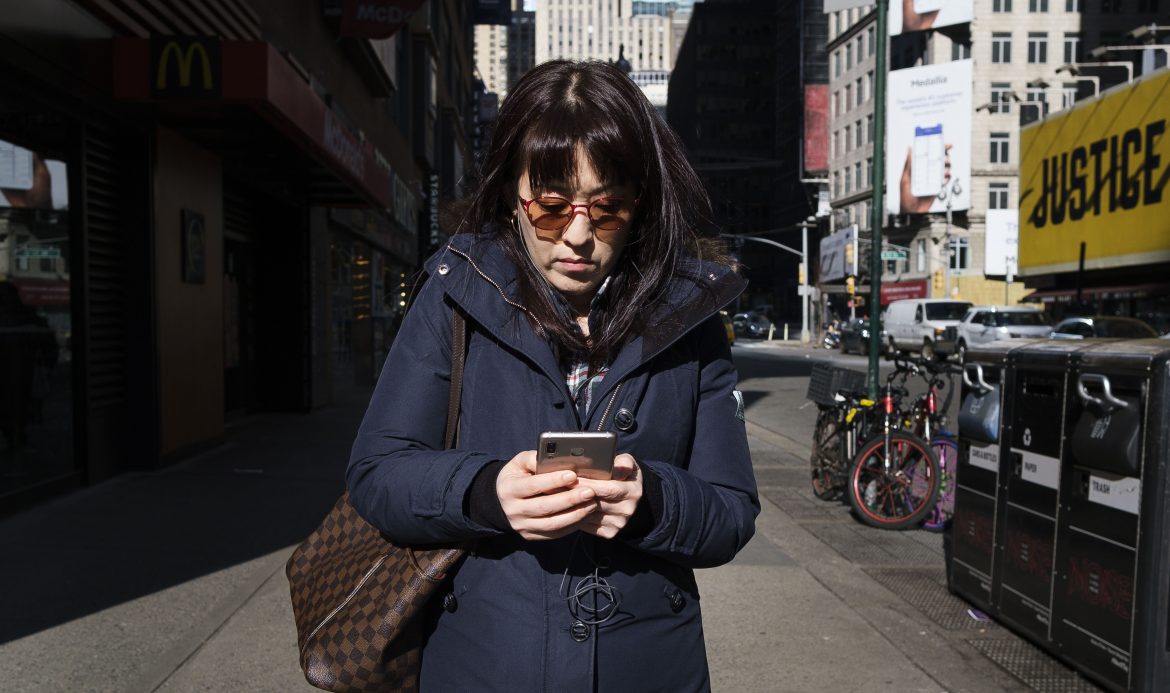Last week, I paid a rare visit to an Italian restaurant to catch up with a friend. As our food arrived and I sliced through the brittle base of a thin crust pizza I looked up to see two girls being seated on the table next to us.
Several minutes and about 300 calories later, my dining compatriot went to the loo, and I glanced across the room. I noticed that the aforementioned pair were not talking. Instead of socialising with one another, they were scrolling through their newsfeeds. This would have been a wholly unremarkable sighting had it not been for it carrying on for the entire night.
In the two and a half hours I spent gorging on Mediterranean cuisine, there was not one time that I looked over and saw those two girls engaging in conversation. Far be it from me to judge, but there is something depressing about people forgoing human interaction to spend their time staring at a screen.
The issue of excessive digital consumption is one not limited to my experience at pizzerias. In September, the Social Dilemma documentary was released to Netflix users in the UK, offering a dystopian but all too real reflection of social media usage in our society.

It presented the argument that apps like Facebook and Instagram manipulate the human psyche to keep us on our phones as much as possible. Extended screen time, which generates extra profit for big tech companies, is said to come at the cost of our mental wellbeing.
The film alleges that with targeted content recommendations, social platforms could even be pushing conspiracy theories and dividing our society along partisan lines. So what is the extent of damage done by social media to our lives?
Unhappiness and Mental health issues
Before smartphones became a necessity to everyday life, it was much easier to focus exclusively on ourselves. Social networking apps provide a constant reminder of what others are doing and cause us to make unfair comparisons with the seemingly perfect online personas of others.
In a survey of female readers, Stylist magazine found that 83 per cent of women said social media negatively impacted their self-esteem. In addition, 58 per cent said it changed the way they viewed others, and 40 per cent said they compared themselves with other people’s successful careers.

This comparison is clearly harmful to our mental well-being and is totally unnecessary. Why waste time worrying about what other people are doing when you could be working to improve your own personal circumstances?
The mental health impact of social media is not just limited to measuring the quality of our existence against others. The 2017 Status of Mind Survey found that smartphone usage was causing young people to experience lack of sleep, increased levels of anxiety and depression and unhappiness with their body image.
These are serious public health issues that have not gone unnoticed by UK lawmakers. In 2019 the House of Commons Science and Technology Committee released a report which said that big tech companies must be more transparent with how their content algorithms operate to enable a better understanding of how they are affecting the health of users.
Echo Chambers
Looking beyond psychological wellbeing, but staying firmly rooted in the human psyche, the issue of social media usage also feeds into our increasingly polarised political beliefs.
The algorithms which the House of Commons report referred to are used to recommend content to us based on who we follow and what we look at. This means that if you are subscribed to funny dog accounts on YouTube, you will probably find a golden retriever or a French bulldog on your next recommended video.
This seemingly harmless principle can take a slightly darker turn when applied to politics. Say you watch a video of one of President Trump’s rallies. The algorithm would likely recommend you watch a conservative news report or a video sympathetic to the President. This is because the algorithm would see you as a Trump supporter.
The consequence of this is a flurry of partisan content recommendations from one side of the political divide. This phenomenon is called an echo chamber, a situation where beliefs are reinforced over and over. It is something which MIT researchers Marshall Van Alstyne and Erik Brynjolfsson warned of in 1996, dubbing the scenario Cyberbalkanization.
Given that at least 45 per cent of the population use social media to consume news, the echo chamber scenario presents a wide-ranging problem. It is one that reared its head in 2016 when Edgar Madison Welch fired three shots into a Washington Pizzeria. He did so on the premise that it was being used as a staging post for a child sex trafficking ring involving Hillary Clinton.
This was a conspiracy theory better known as Pizzagate which was allowed to circulate on far-right social media pages. The incident, along with the numerous death threats to the restaurant owners preceding the attack, is an example of how social networks can radicalise when echo chambers are allowed to flourish.
How to solve the problem
Smartphones and social communications have become an integral, essential part of our lives. We use them for work, play and cannot be away from them for long periods, for fear that someone might be trying to contact us.
This dependence makes it all the more difficult to tackle the problems they present us. It would be impossible to get rid of phones and Facebook, so instead, we should consider how they can be reformed.
Looking at the younger generations, the 2019 commons report into social media usage suggested that big tech companies should have a duty of care to under 18s. This would mean firms having a legally enshrined responsibility to protect children from harmful content.

It would ramp up accountability for cases like that of Molly Russell who tragically took her own life after becoming engulfed in an echo chamber of suicidal content on Instagram.
In a similar vein, there need to be more substantial age verification measures to stop kids from being hooked from an early age. As the Science and Technology Committee report says, the verification procedures must be more than a tick box or date of birth entry.
We should also be more personally accountable for curbing our excessive usage of social media. Putting in place screen time checks and having phone-free hours before bedtime are all ways that we can develop a healthier relationship with our phones.





